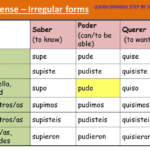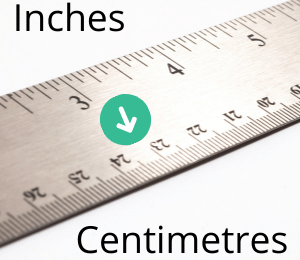Whenever a student is asked which subject they find the most difficult, their answers usually include math. Whether it’s trigonometry, derivatives, or problem-solving, students always find mathematics a challenging subject. Because of the cumulative nature of math, where people need to remember and build on previously learned operations, many students get confused about its concepts.
How good are you at understanding the varied concepts in math? If you think you’re not that good, that’s alright. Even the math geniuses out there still stumble and stress over math concepts. This is because most of its problems and equations require students to have patience, persistence, and diligence. For you to understand it well, you’ll have to dedicate loads of time and energy.
If you’re having trouble comprehending math concepts, don’t feel too bad. This guide will help you overcome your struggles with the subject, improve your skills at solving mathematical equations, and comprehend core concepts.
1. Math Is Better Understood Than Memorized

Math isn’t like a drama script that you have to memorize. Instead of trying to understand why you need to accomplish certain steps, some students tend to focus more on memorizing the procedures or steps to follow. If you’re like this, it’s noteworthy that you realize the importance of learning the ‘whys’ in math concepts and not just the ‘hows.’
Take the conversion of normal numbers to standard form as an example. There are multiple ways to convert a standard equation: vertex form, factor form, or slope-intercept. Perhaps you want to convert it into a slope-intercept form. The conversion of this equation rarely makes sense unless you fully grasp the recommended reading material for a detailed explanation. The way you comprehend how and why steps were taken will determine if you really understood the concept.
2. Get Active In Connecting Complicated Concepts
If you really want to understand the complex concepts in math, you’ll need to get out of your comfort zone. Don’t be a slacker when it comes to learning. Since math concepts are cumulative, you’ll need to connect past lessons to the present ones. Engage and participate during the class discussions and keep asking questions whenever you’re confused.
Actively engaging the concepts you learned previously while also working on the more complicated concepts will help you better understand how the connection benefits the world of mathematics. Allow yourself to integrate concepts seamlessly, whether it’s the set of variables or how you formulate equations.
The more you’re able to connect the concepts in math, the greater your understanding will be. Math concepts, after all, go through increasing levels of difficulty. So, it’s essential to realize the benefit of starting from simple concepts to learning core concepts. But before you move on to the more difficult levels, be sure to understand the easier level fully.
3. You Can Learn More Through Continued Practicing
Math is a language, too. Understanding it also entails being able to identify the connections between numbers and other variables. And just like learning a new language, learning mathematics will require you to practice each concept by yourself.
Allow yourself to learn arithmetic topics at your own pace. If things become too tough, you can seek assistance from your teacher. Keep motivating yourself to practice until the concepts make sense to you. When you’ve practiced enough, you’re likely to get more excited about the proceeding concepts that you need to learn.
4. Doing More Will Help You Go Beyond Average
Keep the fire burning by working on extra tasks. Have you understood the concept? If your answer is yes, don’t stop there! Exercise your brain by continuing the learning process. By doing so, you’re continuously employing the fundamental concepts of mathematics to solve problems.
Think of math the way a dancer thinks about their dance choreography. Most beginners don’t just sit and watch professional dancers for them to perform the dance steps perfectly. Instead, they attend dance lessons, practice, and rehearse even more at home. And even when they go on to the next choreography, they make time to review and go above and beyond what they were taught.
Similarly, as a math student, you must continue to go above and beyond having average math skills by practicing in class or doing homework by yourself. Again, going the extra mile will help you grasp the math concepts more easily and quickly.
5. Work With Others And Learn More
Some prefer working on many tasks alone. However, when it comes to completing mathematical equations and comprehending concepts, having a study buddy might be more beneficial for you. Sometimes, a buddy can help explain a particular concept in a way that’s tailored to your learning style. They can give you their point of view and present it in a different way.
This is usually the reason why some teachers allow their students to work in pairs, triads, or larger groups – especially if the students are struggling with a complicated mathematical concept. With study buddies, you and your group mates are given a chance to talk about how each of you got the answer on a particular math problem or how one wasn’t able to comprehend the procedures fully.
6. Share Your Thoughts And Ask Questions
Participating in class discussions is another effective method to improve your understanding of math concepts. If you have any questions about a particular chapter, feel free to ask your teacher. Moreover, be prepared to express your own perspective on the subject whenever your teacher asks.
Being able to explain and question things are some of the fundamental ways for a student to understand and grow as an individual and as a math student. If you allow yourself to use the freedom you have to do these things, you can better commit to these concepts in the long-term, thus enabling you to remember them even when you finish school.
7. When You’re Stuck On A Concept, Call A Friend
Sometimes, despite how hard you try to understand a math concept, difficulties can still arise, leaving you stuck and annoyed about it. If this happens, try not to be too anxious about it. Instead, speak up and seek assistance.
If you have a buddy who’s knowledgeable in math or a mentor, don’t hesitate to ask for help. Otherwise, you’ll forever see math as a very frustrating subject. Don’t allow frustration to keep you from attaining your full potential; instead, have a buddy walk you through the complex concepts.
The Bottom Line
The purpose of learning math is to understand its concepts and apply them in real life. Being able to understand concepts means you’re able to recall them, apply information in new situations, and explain it in a way that others can comprehend. Dealing with mathematics appear may seem like a complicated ordeal for some. But if you work on it every day and are willing to go beyond your current limitations, you’ll able to understand its concepts.





